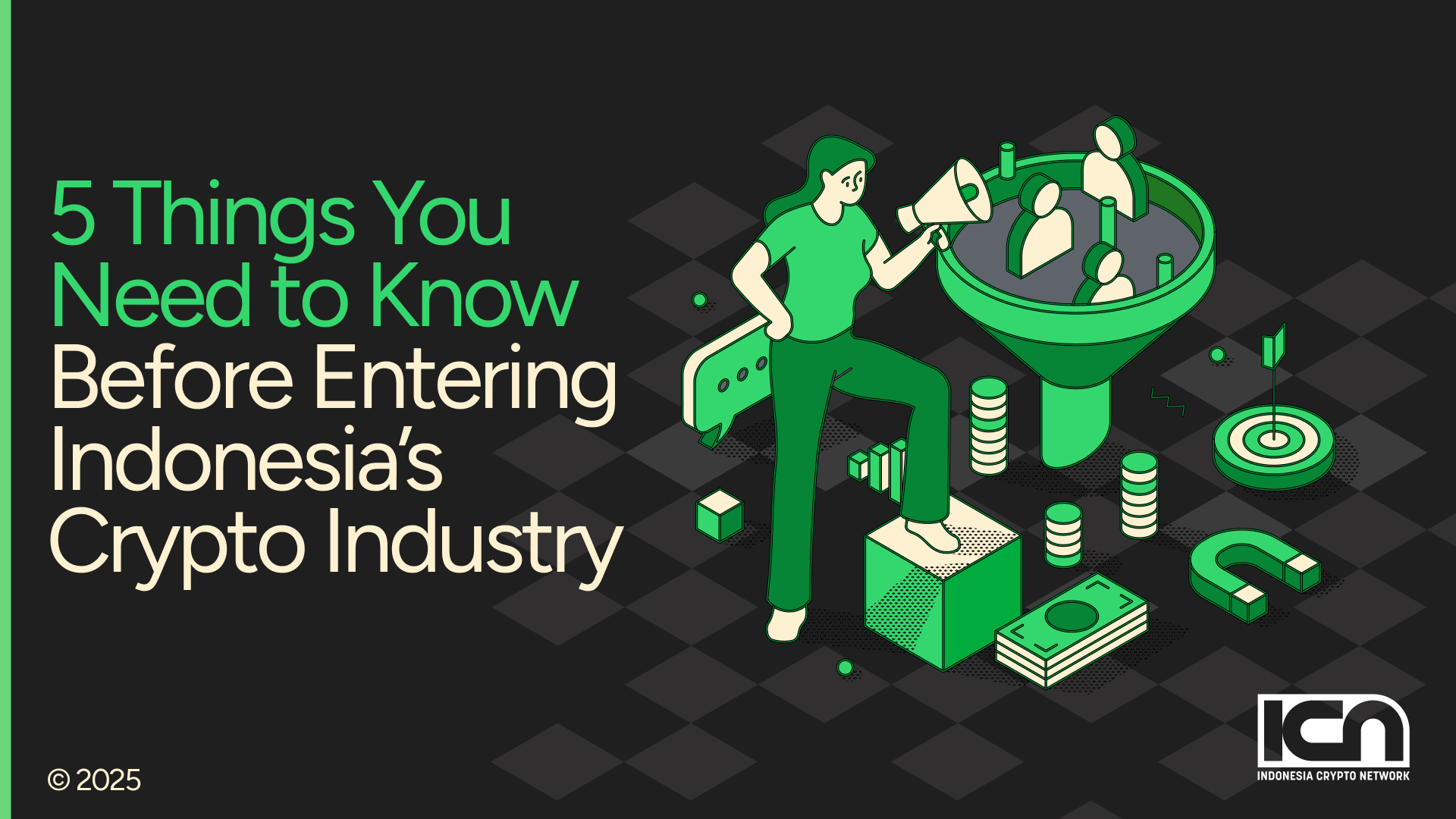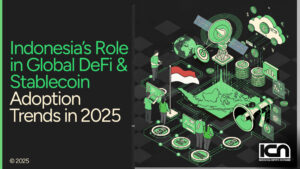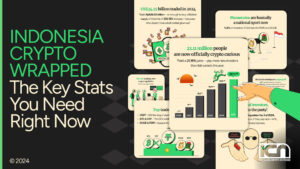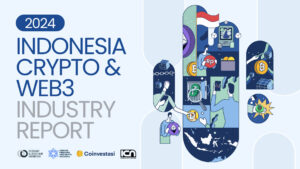A field guide for Web3 founders, operators, and ecosystem builders
Indonesia isn’t just an “emerging market” anymore. It’s become one of the world’s most active crypto ecosystems, home to over 21 million registered users and ranking third globally in adoption, according to Chainalysis.
But the playbook that worked in other countries won’t fly here.
Launching in Indonesia isn’t about flipping on a Bahasa Indonesia toggle and running a meme campaign. It’s about understanding how legality, culture, and community blend into something uniquely local and strategically powerful.
So, if you’re building a crypto company whether you’re in DeFi, infra, consumer apps, or tokenized real-world assets here’s what you need to grasp before you enter this market.
You need a license, No exceptions
A major regulatory shift hit in 2025. The days of operating in the grey are over. Control of crypto oversight moved from the commodities agency (Bappebti) to OJK, Indonesia’s Financial Services Authority.
Every crypto model now needs to pass through their regulatory sandbox if it doesn’t fit into an existing rulebook. That means 12 months of live testing with real users, submitting risk assessments, regular progress reports, and yes plenty of paperwork.
Only after getting the green light can you apply for a full license under the ITSK framework.
There’s no soft launch. No “let’s test the waters and see what happens.” You’re either compliant or you’re blocked from banks, payment rails, and potentially from users altogether.
Read more: Indonesia Surges to #2 in Global Crypto App Usage
Being legal isn’t just safe it’s strategic
In Indonesia, regulation isn’t a box you tick. It’s a door you open.
A license from OJK tells users that you’ve been reviewed by the government, that your product is legitimate, and that you’re not just here for the bull run. And in a market where rug pulls have made national headlines, that trust signal means everything.
It also gives you access to things that many projects underestimate — like integration with local payment systems (GoPay, OVO, QRIS), media coverage from platforms like Coinvestasi, and even the ability to partner with major institutions or participate in public sector initiatives.
In short: being legal helps you grow. Especially in a country where credibility comes from authority, not just hype.
Localization goes beyond translation
A lot of projects think slapping “.id” on a domain and translating their landing page is enough. It’s not.
Localization in Indonesia means understanding how people pay, how they learn, and how they decide who to trust.
If you’re not supporting local e-wallets or QR payments, good luck acquiring users. If you don’t have content on YouTube or community chats on Telegram, your message isn’t landing and you might miss an entire user base.
Users aren’t onboarding through CoinGecko or Discord. They’re learning from influencers who feel more like teachers, and communities that meet in cafés or on campus. Your brand needs to speak their language not just literally, but culturally. If you don’t reflect the way people live, they won’t reflect back on your product.
Community is how crypto grows here
Crypto didn’t scale in Indonesia through ads or influencer giveaways. It scaled through people — students, traders, devs, and small business owners gathering in city-based Telegram groups, student blockchain clubs, and Web3 meetups in places you’ve probably never been.
ICN works with over 15 of these local communities, and here’s what we’ve seen: People don’t adopt products because of slick branding or TV commercials. They adopt them because someone they know explained it. And they stay because they’ve met the team — offline, face-to-face.
If you’re serious about entering the Indonesian market, your marketing budget needs to include train tickets, community leads, and local moderators. Not just Meta Ads. Community isn’t a growth channel in Indonesia it’s the entire infrastructure.
First movers get more than just press
Here’s something most teams miss. In Indonesia, if your product passes the OJK sandbox first your model sets the precedent. Literally.
Under POJK 3/2024, your structure, logic, and documents become the basis for future approvals. Other projects with similar models might not even have to go through the sandbox if you’ve already laid the path.
Imagine being the first to get approval for tokenized securities, a smart wallet architecture, or a staking protocol. That doesn’t just give you bragging rights it makes you the blueprint. Being early in Indonesia isn’t just fast. It gives you leverage.
Final thoughts
Indonesia isn’t a test market. It’s the real thing. With a clear regulatory framework, massive user base, and a culturally distinct approach to technology and trust, it’s a place where Web3 projects can thrive if they’re willing to commit. Don’t show up with just an idea and a whitepaper. Show up ready to be part of something bigger.
Read more: Is Indonesia Ready to Become Crypto-Friendly?
Thinking about entering Indonesia?
Book a call or fill out our market entry form if you’re ready to make it real.




